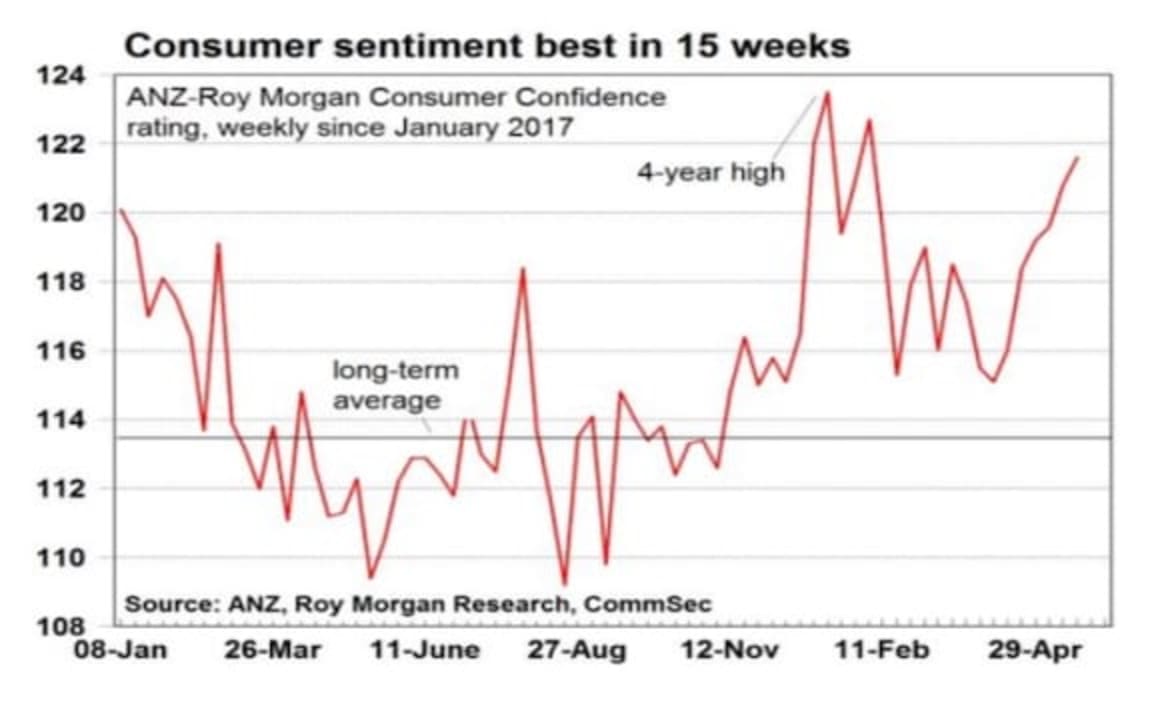The wealth effect: rising sharemarket, steady home prices and bonuses boost consumer sentiment: CommSec



Four of the five components of the index increased in the latest week:
The estimate of family finances compared with a year ago was up from +7.9 to +10.1;
The estimate of family finances over the next year was up from +27.1 to +27.8;
Economic conditions over the next 12 months was unchanged at +13.2;
Economic conditions over the next 5 years was down from +17.5 to +15.3;
The measure of whether it was a good time to buy a major household item was up from +38.1 to +41.7. The measure of inflation expectations 2 years ahead rose from 4.1 per cent to 4.2 per cent.
Click here to enlarge.

What is the importance of the economic data?
The ANZ/Roy Morgan weekly survey of consumer confidence closely tracks the monthly Westpac/Melbourne Institute consumer sentiment index but the former measure is a timelier assessment of consumer attitudes and is now closely tracked by the Reserve Bank.
What are the implications for interest rates and investors?
Aussies are a resilient bunch. The number of optimists still outweigh the number of pessimists.
Rising petrol prices, anaemic income growth, elevated household debt and a weaker currency are a combined weight on household budgets. However, this is counterbalanced by improving job security, better bonuses and tax relief for some. Households are still spending.
And according to CoreLogic, Aussie home prices held steady last week. Sydney and Melbourne home prices, especially at the top end of the market, continue to decline. But what about the rest of the country?
Prices in Adelaide and Brisbane have risen modestly over the past year. Hobart continues to benefit from its improving economy and better relative affordability.
Perth home prices are declining, but at a slower pace, signalling a potential bottoming. According to the WA Chamber of Commerce, business confidence is the best in seven years. Profits in the mining sector are rising and job ads are increasing.
And when it comes to share markets, so much for the ‘sell in May and go away’ cliché! While some well-known blue chip companies have underperformed recently, savvy Aussie investors have positioned themselves in stocks with specific positive catalysts, paying decent dividend yields. Corporate profits are at record highs and the Aussie economy is improving.
However, broader inflationary pressures remain fairly benign. Therefore, CommSec expects official interest rates to be stable for the foreseeable future.
Ryan Felsman is a senior economist at CommSec.